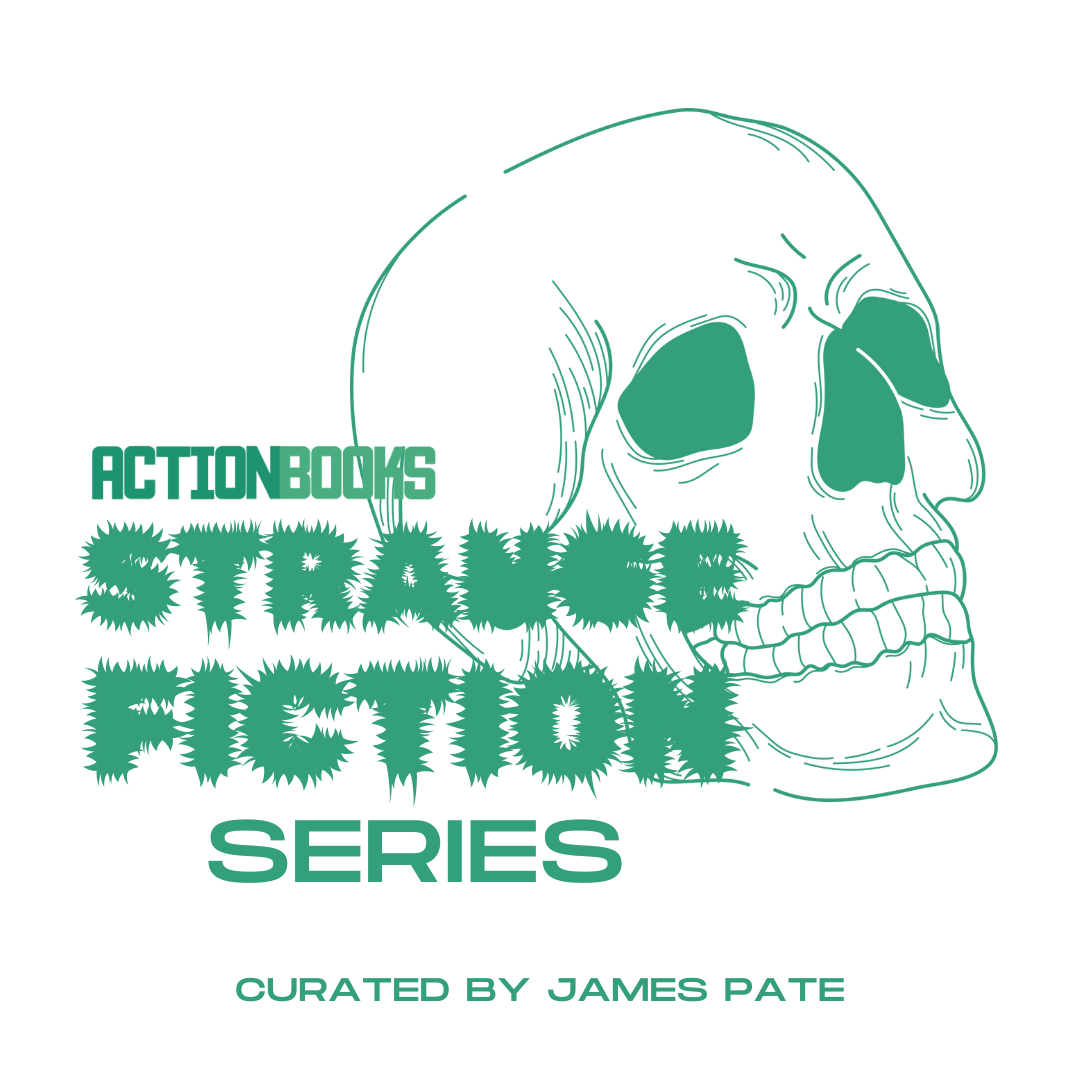
Art doesn’t so much mimic reality as morph, stretch, and bewitch it. The so-called rabbit holes, the night thoughts, the stray bits we dismiss, the teeming multiplicity of various “realities” – in the coming months, the Action Books Strange Fiction Series will showcase texts that delve into such zones. The world is always waiting to be more haunted.
Don’t
Photosynthesize,
My Love
The deep affection between the two women began long ago in the early days of autumn where the desert wind has kicked his legs high in the air, kicking so high the barren earth could see the clouds billowy, swelling with gas and gust across its wide hem. The night traveled far into the darkness with its invisible wheel, a glide of timelessness. And, fog passed his time by sitting on top of a hill while swinging his legs back and forth in between the gorge and abyss. And, it seemed time had slipped away without conveying its feelings for nothingness. Shacks of houses sat begrudgingly against the short bodies of ocotillos, aboriginal to the Chihuahuan and Sonoran deserts. Daphne had returned home carrying a bundle of ponderosa pines on her back. The light had emptied its eyes beneath the mountain. There was a faint residue of light haloing the long and wide bodies of the deciduous palo verdes and the slender bodies of the desert willows. Daphne took one leaf-like glance at it before cracking the heavy wood door of their abode with a thud and dropping a load off her back. She closed the door and entered the kitchen with the fireplace aglow with heat. The place was engorged with this rifting silence that had conveyed that time here was slow and half-fractured, as if there was a gap in this mortal coil reserved for those who no longer found vigor with youth. Though both women were youthful and even young in their maturity. Daphne sat down on the chair next to the stove. After all, she had just collected wood for their short winter months ahead after a forest fire. After removing her flowering boots and seed-bearing socks, she walked towards the fireplace bare-footedly. Her foliage pressed against the skull of the earth. She placed her soiled hand against the rocky wall and studied the pulsing cadence of the fire. The fire made her inner leaf curled and part of her face cracked in response to the desiccated exchange. When she turned her gaze, alkaline and chalky with soil, away from the music of the heat, Daisy was standing there in her yellow blouse and verdant jeans, looking more and more perennial and fertile with each passing second. It was no longer diurnal, but quite diurnal and radiant she appeared.
How was it?
Dry and brittle.
Are you tired?
Very.
Shall I prepare you something dorsal?
Daphne shook her head.
Daisy turned her back away and moved her body like a pendulous leaf towards the bathroom. With the fire glowing brightly, it was too hard for her to photosynthesize. When she returned, a wet hand cloth draped over her wrist. She walked towards Daphne. Lifting one of her hands, she began to scrub the dirt off her. Flipping the cloth over, she took the other hand and gently kneaded the earth’s dark flour, ash and smoke, onto it. It left an embryonic stain that appeared more like a cat’s paw print than anything epigeal. When their stems intertwined, Daphne lifted Daisy’s viridescent hand towards her lips and kissed them softly. And, in seconds, she was exploring her throat with the muscularity and decidua of her kisses.
Please don’t photosynthesize, she begged softly as she laid her mouth quietly and ardently on her exposed neck. With each kiss, she felt as if her body was defoliating.
It was too late.
Had she asked for the impossible?
Pollution from warmth was a difficult fleece to wear in the winter months.
When they made love that late evening there were chlorophyll, plasma membrane, and oxygen content from earth’s organic synthesis from a long time ago. Daisy, smaller and more ephemeral, heaved beneath Daphne’s clusters of seed, radicle, and root hairs. Their bodies moved this way because Daisy was hypogeal and her lover, epigeal. Only in the way they burst forth from stem to stem in their orgasm. Their lovemaking was their first sign of germination – their way of being in the world post-embryonically. When two leaves made love in their human form – was that love borne from vascularity or honeysuckleness or was that love coniferous and ambiguous? When Daphne pinned Daisy so dorsiventrally, could she ever stop photosynthesizing? Could she never remain the same in the same body ever again? When her lover was out of reach, mulching post-coitally? Where in time could they be still together? Beneath the fingernail of the soil? Above ground when they are withering and shredding in the desert breeze. Time made her skin grief atom by atom. Even when darkness clothed their ardor with the moisture from the moonlight, both Daphne and Daisy still felt naked from being alive. Nothing could clothe their vulnerability from a chemical event, not even smoke and pollution.
